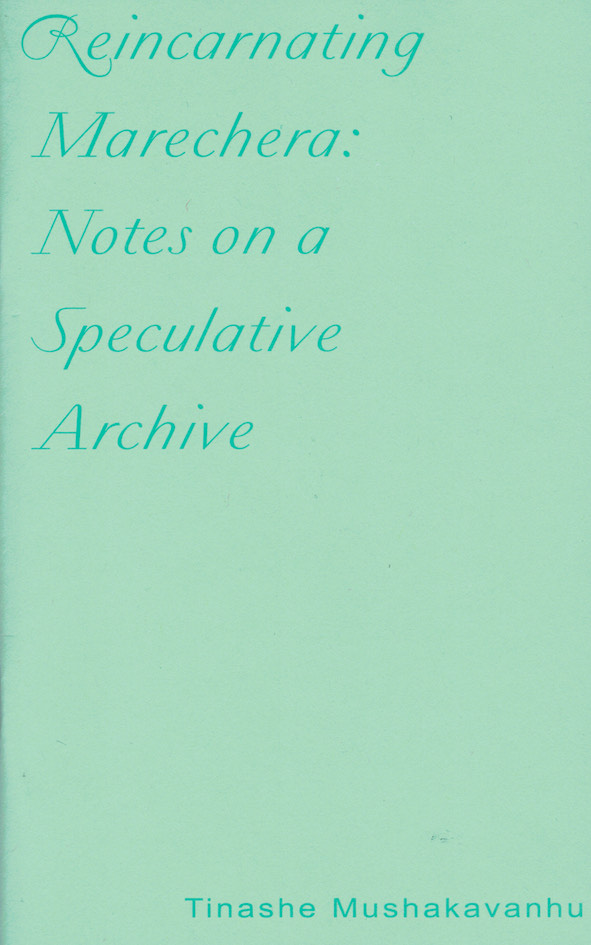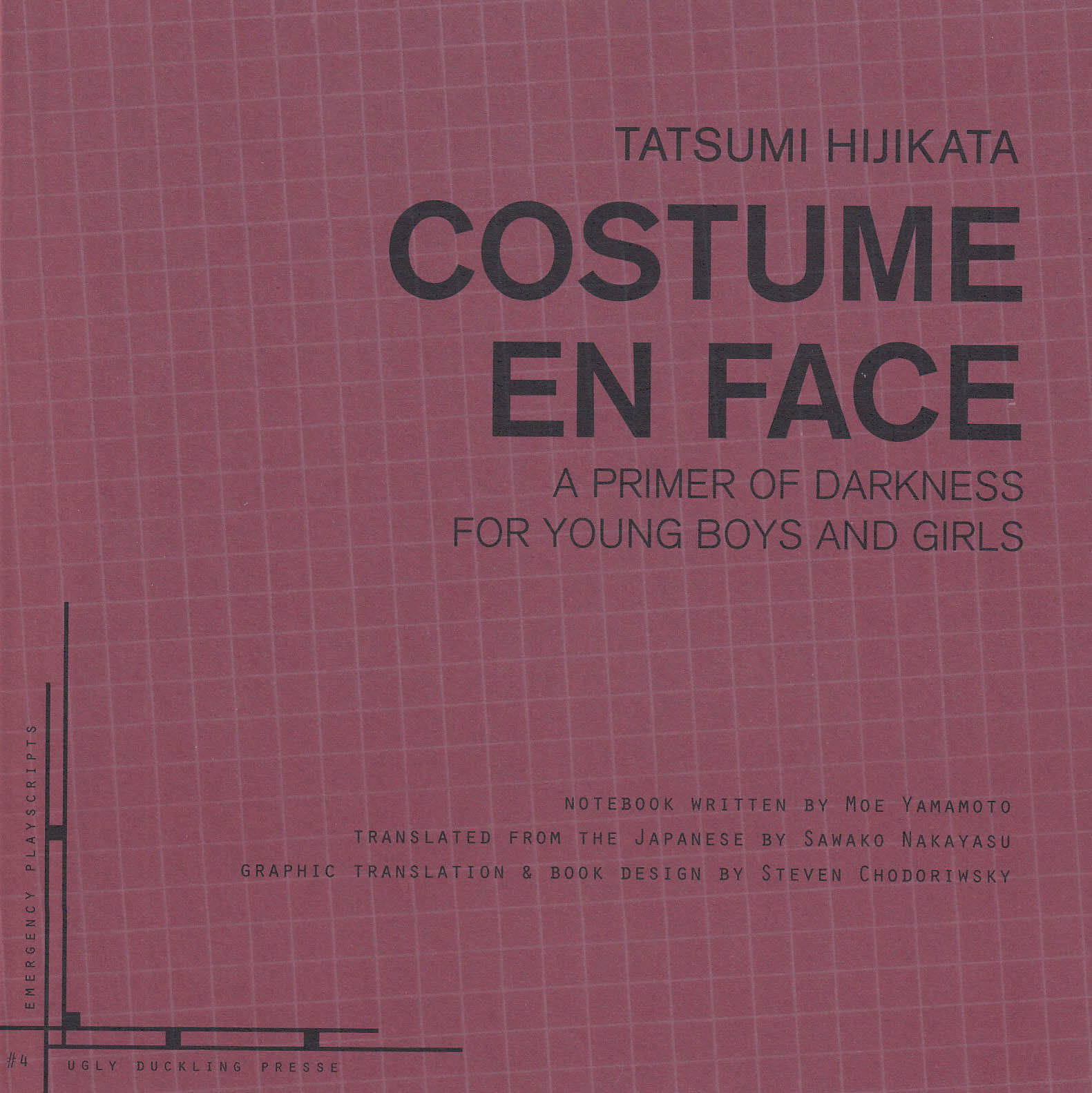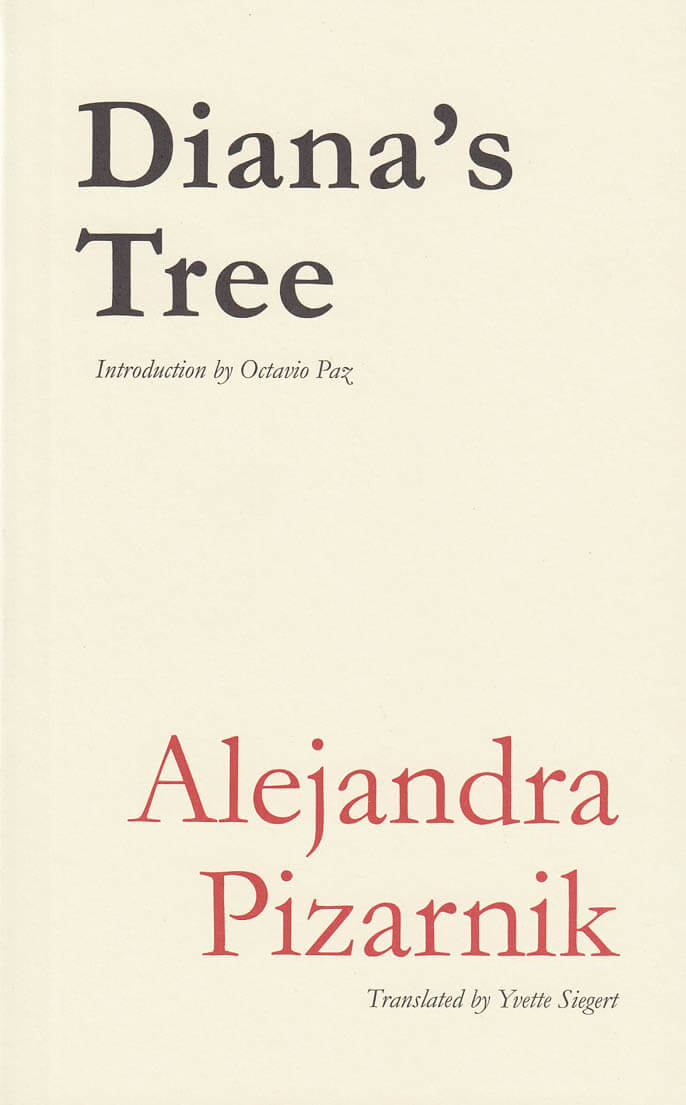Ugly Duckling Presse
Ugly Duckling Presse

Letters: The classroom is burning, let's dream about a School of Improper Education
Since its founding as a cultural studies group in 1999 in Yogyakarta, Indonesia, KUNCI Study Forum & Collective has experimented with methods of producing and sharing knowledge through acts of collective study at the intersections of affective, manual, and intellectual labor. This pamphlet is a collaboratively authored epistolary essay that narrates the discourse behind the development of KUNCI’s School of Improper Education, an initiative that posits studying together as a tactical approach to creating the conditions for social movement. Founded in 2016, The School of Improper Education is an avenue through which unlearning can be practiced, where unknowingness can be transformed into a series of productive tools for understanding the contemporary social ecosystem and articulating the resourcefulness of an independent art and cultural organization.
This pamphlet is part of UDP’s 2020 Pamphlet Series: twenty commissioned essays on collective work, translation, performance, pedagogy, poetics, and small press publishing. The pamphlets are available for individual purchase and as a subscription. Each offers a different approach to the pamphlet as a form of working in the present, an engagement at once sustained and ephemeral.
KUNCI Study Forum & Collective experiments with methods of producing and sharing knowledge through acts of studying together at the intersections between affective, manual, and intellectual labor. Since its founding in 1999 in Yogyakarta, Indonesia, KUNCI has been continuously transforming its structure, ways, and medium of working. Initially formed as a cultural studies study group, at present KUNCI’s practices emphasize collectivizing study by way of space-making, discussion, research, publishing, and school-organizing. KUNCI traverses and connects institutional, disciplinary, and geographical boundaries. KUNCI’S membership is informal and based on friendship, as well as principles of self-organization and collaboration.

Translation is a Mode = Translation is an Anti-neocolonial Mode
Don Mee Choi is the author of three books of poetry and hybrid essays, and an award-winning translator of contemporary Korean women’s poetry. In this pamphlet, Translation is a Mode=Translation is an Anti-neocolonial Mode, she explores translation and language in the context of US imperialism—through the eyes of a “foreigner;” a translator; a child in Timoka, the made-up city of Ingmar Bergman’s The Silence; a child from a neocolony.
This pamphlet is part of UDP’s 2020 Pamphlet Series: twenty commissioned essays on collective work, translation, performance, pedagogy, poetics, and small press publishing. Each offers a different approach to the pamphlet as a form of working in the present, an engagement at once sustained and ephemeral.

Reincarnating Marechera: notes on a Speculative Archive
Dambudzo Marechera’s death on August 18, 1987 is an event that remains unremarked. In Reincarnating Marechera: Notes On a Speculative Archive, Mushakavanhu interprets this event as a moment of radical praxis in the Zimbabwean imaginary, mining three overlapping archives—Marechera’s own writings, his historical and theoretical legacy, and an imaginative archive that responds creatively to gaps in the first two. Here, Mushakavanhu also explores the affective relationship between a critic and his object of study, grappling with the transit between the historical archive and the critical present. In doing so, through text and visuals, the book is a revelation of countless ruptures and of the inexhaustibility of documenting a mercurial subject like Marechera.
This pamphlet is part of UDP’s 2020 Pamphlet Series: twenty commissioned essays on collective work, translation, performance, pedagogy, poetics, and small press publishing. The pamphlets are available for individual purchase and as a subscription. Each offers a different approach to the pamphlet as a form of working in the present, an engagement at once sustained and ephemeral.
Tinashe Mushakavanhu is a Zimbabwean writer, scholar, and founding partner of Black Chalk & Co., a fugitive creative agency that operates between Harare and Richmond, VA. His most recent publication is Some Writers Can Give You Two Heartbeats (2019). He has also co-edited Visa Stories: Experiences Between Law and Migration (2013) and State of the Nation: Contemporary Zimbabwean Poetry (2009). He holds degrees from English, Welsh and Zimbabwean universities. He is currently a postdoctoral fellow at Wits Institute for Social and Economic Research (WiSER) at the University of Witwatersrand, South Africa.
Published July 2020

Being Human Is an Occult Practice
In the essay BEING HUMAN IS AN OCCULT PRACTICE, Zurawski argues that studying and sharing literature can function as a means of enriching the impoverished definition of human created by capitalist social relations. Beginning with an analysis of Robert Duncan's description of the moment in his high school classroom when he finds himself called into a life in poetry, this essay explores the possibilities of the literature classroom at the very moment that it's being dismantled by the neoliberalization of our university systems. Zurawski argues that the literary holds a revitalizing potential precisely because of its capacity of exceeding the narrow imaginative aims of life within our contemporary social order.
Magdalena Zurawski is the author of BEING HUMAN IS AN OCCULT PRACTICE (Ugly Duckling Presse, 2020), the novel The Bruise, which won the Ronald Sukenick Award from FC2 in 2008 and a LAMBDA literary award in 2009, and the collection of poems COMPANION ANIMAL, which was published by Litmus Press in 2015 and won a Norma Faber First Book Award from the Poetry Society of America. THE TINIEST MUZZLE SINGS SONGS OF FREEDOM (Wave Books, 2019) is her most recent poetry collection. Her poem/essay Don't Be Scared is available as a chapbook from The Operating System. As an undergraduate Magdalena studied with poets Rosmarie and Keith Waldrop, C.D. Wright, and Peter Gizzi. She has lived in Berlin, New York, Philadelphia, San Francisco, and Durham, NC where she ran the Minor American Reading Series. She is currently Associate Professor of English and Creative Writing at the University of Georgia, where she directs the Creative Writing Program.

The First Books of David Henderson and Mary Korte: A Research
In 1967, the first books of two poets were published by small presses on opposite coasts of the USA: David Henderson's Felix of the Silent Forest and Mary Norbert Korte's Hymn to the Gentle Sun. In this essay, poet, scholar, educator, and publisher Iris Cushing looks at the context of these supposedly minor poets, and through research and conversation with Korte, Henderson, and Diane di Prima, reconstructs the role of small presses in the countercultural resistance of the late 1960s.
Iris Cushing is a poet, scholar, educator and founding editor for Argos Books, an independent poetry press. She is the author, most recently, of THE FIRST BOOKS OF DAVID HENDERSON AND MARY NORBERT KORTE: A RESEARCH (Ugly Duckling Presse, 2020), and Into the Long Long Time: How Mary Korte Saved the Trees (Ink Cap Press, 2019). Her poems and critical writings have appeared in numerous publications, including the Boston Review, Fence, and the Academy of American Poets Poem-A-Day series, and her poetry collection WYOMING (Furniture Press Books, 2014) won the 2013 Furniture Press Poetry Prize. She has edited three chapbooks for the Lost & Found Poetics Documents Initiative: Diane di Prima: Prometheus Unbound as a Magickal Working (Series VIII, 2019), Bobbie Louise Hawkins: The Sounding Word, and Judy Grahn: Selections from Blood, Bread and Roses (Series VI, 2016). A doctoral candidate in English at the CUNY Graduate Center, Iris is currently at work on a biographical dissertation titled Pierce and Pine: Diane di Prima, Mary Norbert Korte and the Question of Matter and Spirit.

A Piece of Work
Mixing live performance with algorithms and interfaces, A Piece of Work is the second project in Annie Dorsen’s “algorithmic theater” series. A digital Hamlet for a post-humanist age, A Piece of Work deploys a set of ingeniously designed computer algorithms to generate real-time adaptations of Shakespeare’s original play. New scenes, songs, scores and visuals emerge from an intricate web of technology. With an introduction by Dorsen, and screen-shots of the system as it runs, this book elaborates both the technological and the poetic procedures of algorithmic theater.
Annie Dorsen is a director and writer, whose works explore the intersection of algorithms and live performance.

Syncope
Through a series of prayers, invocations, and hymns, Syncope eulogizes those who have perished making Central Mediterranean crossings as well as collects first-hand accounts of those who have survived these perilous journeys. Forces of fate brought errant lives together for a hopeful safe passage and ultimately, linked these lives in their untimely deaths. Syncope attempts to shed some light on these lives, as well as the happenstance of living and dying while trying to cross a border.
Asiya Wadud is the author of Crosslight for Youngbird, published by Nightboat Books in 2018, day pulls down the sky… a filament in gold leaf written collaboratively with Okwui Okpokwasili (2019, Belladonna/ Danspace), and Syncope (UDP 2019). Her collection No Knowledge Is Complete Until It Passes Through My Body (Nightboat Books) is forthcoming in 2020. Asiya teaches poetry at Saint Ann’s School and leads an English conversation group for new immigrants at the Brooklyn Public Library.

Costume En Face
As the founding father of the radical dance form that he called Butoh, Tatsumi Hijikata (1928-1986) is a legendary figure in the history of art and contemporary dance. Though influenced by Western artists and writers—the expressionist dance of Mary Wigman, the writings of Artaud, de Sade, Bataille, and Genet, and the drawings and paintings of Goya, Picasso, Toyen, Beardsley, and others–he was dedicated to the particular experience of the marginalized, Japanese suffering body after World War II.
In the mid-1970s, Hijikata became concerned with developing notation for his Butoh, and some of these Butoh-fu notations remain, largely in the form of notebooks transcribed by his disciples. Costume en Face is the first publication of one of Hijikata’s notebook notations in either English or Japanese. In it we can see, for the first time, the profound interconnectedness of language and body in Hijikata’s process of composition.
Tatsumi Hijikata was born in Japan in 1928. He founded the radical dance form known as Butoh, which requires dancers to internalize complex and often grotesque images, experiences and perspectives in order to produce precise movements. Even after his abrupt death in 1986, his dance works and writings continue to be extremely influential.

Chronology
Taking as its starting point an ultimately failed attempt to translate a Sesotho short story into English, Chronology explores the spaces language occupies in relationships, colonial history, and the postcolonial present. It is a collage of images and documents, folding on words-that-follow-no-chronology, unveiling layers of meaning of queering love, friendship, death, and power. Traveling from Cape Town to the Schomburg Center in New York, Zahra Patterson’s Chronology reveals and revels in fragments of the past-personal and the present-political.
Chronology was awarded the 2019 LAMBDA Literary Award for Lesbian Memoir/Biography.
Zahra Patterson is a writer and educator. Her short fiction has appeared in Kalyani Magazine and The Felt, and a reading of her play, Sappho’s Last Supper, was staged at WOW Café Theatre. She learned postcolonial theory in the bookshops of Nairobi and the bars of Cape Town and has an MFA in Writing from Pratt Institute.

Dear Angel of Death
Half poems, half prose, Dear Angel of Death braids intimate and public thinking about forms of togetherness. Is one woman a mother, a person in an artworld, a "black"? What imaginary and real spirits are her guides? The title essay proposes disinvestment in the idea of the Music as the highest form of what blackness "is" and includes many forms: philosophical divergence on the problem of folds for black life, a close reading of Nathaniel Mackey's neverending novel From a Broken Bottle Traces of Perfume Still Emanate, and an impassioned defense-cum-dismissal of contemporary hip hop's convergence with capitalism. - publishers note.
Simone White is the author of DEAR ANGEL OF DEATH (Ugly Duckling Presse), OF BEING DISPERSED (Futurepoem), and House Envy of All the World (Factory School), and the chapbooks Unrest (Ugly Duckling Presse) and Dolly (with Kim Thomas; Q Avenue). Recent poems and prose have appeared in BOMB, New York Times Book Review, Harper's, and Frieze. In 2017, she received the Whiting Award for poetry. She teaches at the University of Pennsylvania and lives in Brooklyn.

Diana's Tree
Translated from the Spanish by Yvette Siegert. In 1962, Pizarnik published her fourth collection, Diana's Tree, the book that would both change and establish her poetic voice, and it contained the slimmest verses the poet would ever write. It also carried a glowing introduction by Octavio Paz, who by that point served as a prominent Mexican diplomat in Paris and had become a leader of the city's expatriate literary circles. Diana'a Tree, wrote Paz, was a feat of alchemical prowess, a work of precocious linguistic transparency that let off "a luminous heat that could burn, smelt or even vaporize its skeptics."

Neighbor
Neighbor’s mutable, shifty narrator alternately reifies and attempts to refuse the constricting, separating, culture-load bearing wall between lovers and neighbors. As antagonisms and intimacies converge, Levitsky troubles the divisions within urban space, and between spatial and ethical frames: “I live on a street where / people turn (on) each other / into a theory.”
This second edition, printed a decade after Neighbor‘s original publication, features an expanded version of the play, “Perfect California: A Family Affair.”

A Handbook of Disappointed Fate
A HANDBOOK OF DISAPPOINTED FATE highlights a decade of Anne Boyer's interrogative writing on poetry, death, love, lambs, and other impossible questions.
"The essays in this book model the poet’s no: they refuse to make things easy when they aren’t, preserving the messy difficulty of cancer, of poverty, of staying alive under capitalism." - Julia Bosson